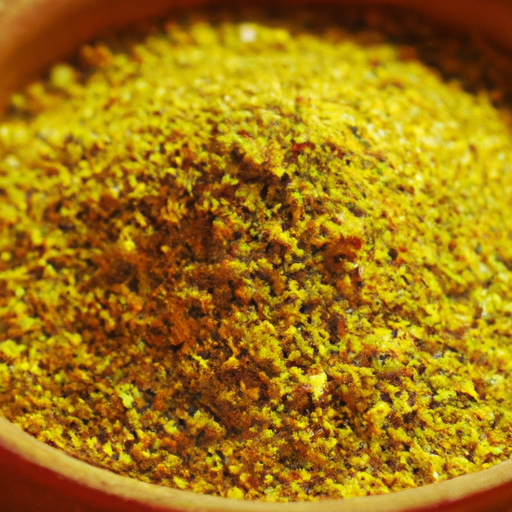Have you ever wondered about the effects of berberine on the brain? Berberine, a natural health supplement derived from various plants, has been used in traditional medicine for centuries due to its potential health benefits. While it is well-known for its ability to regulate blood sugar levels and lower cholesterol, its impact on the brain is a topic of interest. In this article, we will explore the potential effects of berberine on brain health and what the current research says about its benefits. So, let’s delve into the fascinating world of berberine and its impact on our brains.

1. Overview of Berberine
Berberine is a natural health supplement derived from several plants, including Berberis vulgaris (barberry), Berberis aristata (tree turmeric), and Coptis chinensis (goldthread). It has a long history of use in traditional Chinese medicine and Ayurvedic medicine for its potential health benefits.
1.1 Definition and Sources
Berberine is a bioactive compound that belongs to a class of alkaloids. It is characterized by its yellow color and bitter taste. The main natural sources of berberine include the roots, stems, and bark of various plants, especially the three mentioned above.
1.2 Traditional Uses in Chinese and Ayurvedic Medicine
In traditional Chinese medicine, berberine has been used for centuries to treat various ailments, including gastrointestinal disorders, infections, and inflammation. It is believed to have cooling and drying properties, making it useful for reducing heat and dampness in the body.
In Ayurvedic medicine, berberine is also highly regarded for its medicinal properties. It is commonly used to support digestive health, promote healthy liver function, and alleviate symptoms of respiratory conditions.
2. Properties of Berberine
Berberine is known for its diverse range of properties, which contribute to its potential health benefits.
2.1 Anti-inflammatory Effects
Research has shown that berberine exhibits significant anti-inflammatory effects in various tissues and organs. It helps reduce the production of pro-inflammatory molecules and regulates immune responses, leading to a decrease in inflammation. By reducing inflammation, berberine may contribute to the relief of chronic inflammatory conditions and promote overall health.
2.2 Antioxidant Properties
Berberine also possesses potent antioxidant properties. It helps neutralize harmful free radicals in the body, which can cause oxidative stress and damage to cells and tissues. By reducing oxidative stress, berberine may contribute to the prevention of chronic diseases and support overall well-being.
2.3 Antimicrobial Activity
Another notable property of berberine is its antimicrobial activity. It has been shown to effectively inhibit the growth of bacteria, viruses, fungi, and parasites. Berberine’s ability to inhibit the growth and spread of various pathogens makes it a promising natural agent in the field of infectious disease management.
3. Metabolic Health Benefits
While berberine is known for its wide range of properties, its most well-researched and prominent use is in managing various aspects of metabolic health.
3.1 Regulation of Blood Sugar Levels
One of the most significant benefits of berberine is its ability to regulate blood sugar levels. Multiple studies have demonstrated that berberine can improve insulin sensitivity and enhance glucose utilization in cells. This can help individuals with type 2 diabetes or insulin resistance better manage their blood sugar levels.
3.2 Potential Benefits for Type 2 Diabetes and Insulin Resistance
Due to its ability to regulate blood sugar levels, berberine has shown promise as a natural treatment for type 2 diabetes and insulin resistance. It has been observed to lower fasting blood glucose levels and decrease HbA1c, a marker of long-term blood sugar control. Additionally, berberine may help reduce the risk of diabetic complications by improving lipid profile and reducing inflammation.
3.3 Impact on Cholesterol Levels and Cardiovascular Health
Berberine has also been found to have positive effects on cholesterol levels. It can help lower both total cholesterol and LDL (bad) cholesterol levels, while increasing HDL (good) cholesterol. By improving lipid profile and reducing the accumulation of plaque in arteries, berberine may contribute to improved cardiovascular health and a decreased risk of heart disease.
4. Popularity as a Supplement
Due to its positive effects on blood sugar and cholesterol levels, berberine has gained popularity as a natural supplement for supporting overall metabolic health.
4.1 Support for Overall Metabolic Health
Berberine is often used as a supplement to support metabolic health, particularly in individuals with conditions such as prediabetes, type 2 diabetes, or metabolic syndrome. Its ability to regulate blood sugar levels and improve lipid profile makes it an attractive option for those looking for natural alternatives to conventional medications.
4.2 Precautions and Consultation with Healthcare Professionals
While berberine is generally considered safe, it’s essential to consult with a healthcare professional before starting any new supplement, especially if you have pre-existing health conditions or are taking other medications. Berberine may interact with certain drugs, including antibiotics, anticoagulants, and medications for heart conditions or mental health disorders. Close monitoring and guidance from a healthcare professional can help ensure the safe and effective use of berberine.

5. Research on Berberine’s Effects on the Brain
In recent years, there has been increasing interest and research on the potential effects of berberine on brain health.
5.1 Emerging Findings and Interest
While research on berberine’s effects on the brain is still in its early stages, emerging findings have sparked interest in its potential neuroprotective properties and its impact on various neurological and psychiatric conditions.
5.2 Potential Neuroprotective Effects
Preliminary studies suggest that berberine may have neuroprotective effects by reducing oxidative stress, inflammation, and apoptosis (cell death) in the brain. These effects may help preserve brain function and protect against neurodegenerative diseases such as Alzheimer’s and Parkinson’s.
5.3 Antidepressant and Anxiolytic Properties
Some studies have also explored berberine’s potential antidepressant and anxiolytic properties. It has demonstrated the ability to modulate neurotransmitter activity, such as serotonin and dopamine, which play crucial roles in mood regulation. Berberine’s effects on these neurotransmitters may contribute to its potential antidepressant and anxiolytic effects.
6. Neurotransmitter Regulation
Berberine has been found to have an impact on various neurotransmitters in the brain, which can influence brain function and mental health.
6.1 Impact on Dopamine Levels
Dopamine is a neurotransmitter associated with pleasure, motivation, and reward. Research suggests that berberine may help regulate dopamine levels in the brain, potentially leading to improved mood and motivation.
6.2 Modulation of Serotonin Levels
Serotonin is another neurotransmitter involved in mood regulation. Studies have shown that berberine can modulate serotonin levels, potentially contributing to its antidepressant effects.
6.3 Influence on GABA Activity
Gamma-aminobutyric acid (GABA) is the primary inhibitory neurotransmitter in the brain. It helps regulate anxiety and promote relaxation. Preliminary research suggests that berberine may influence GABA activity, although further studies are needed to fully understand its effects.

7. Cognitive Enhancement and Memory
Berberine’s effects on brain function extend to cognition and memory.
7.1 Effects on Learning and Memory
Animal studies have shown that berberine can enhance learning and memory performance. It has been observed to improve spatial learning, object recognition, and memory retrieval. These findings suggest that berberine may have potential benefits for cognitive enhancement.
7.2 Potential Role in Alzheimer’s Disease
Alzheimer’s disease is a neurodegenerative disorder characterized by memory loss and cognitive decline. Some research suggests that berberine may provide protective effects against Alzheimer’s by inhibiting the formation of amyloid plaques and reducing neuroinflammation. While these findings are promising, more studies are needed to validate berberine’s potential role in Alzheimer’s disease.
8. Anti-inflammatory Effects in the Brain
In addition to its general anti-inflammatory effects, berberine has shown potential in reducing inflammation in the brain.
8.1 Reduction of Neuroinflammation
Neuroinflammation is a process characterized by the activation of immune cells in the brain, leading to the release of pro-inflammatory molecules. Chronic neuroinflammation is associated with various neurological disorders. Studies have found that berberine can suppress neuroinflammation by inhibiting the production of inflammatory mediators, potentially contributing to its neuroprotective effects.
8.2 Impact on Neurodegenerative Diseases
Given its anti-inflammatory effects in the brain, berberine may hold promise in the management of neurodegenerative diseases such as Alzheimer’s and Parkinson’s. By reducing neuroinflammation, berberine may slow disease progression and preserve brain function.

9. Influence on Brain Energy Metabolism
Berberine’s effects on brain health also extend to energy metabolism.
9.1 Enhancement of Mitochondrial Function
Mitochondria are the powerhouses of cells, responsible for generating energy. Berberine has been shown to enhance mitochondrial function in the brain, leading to increased energy production and improved cellular health.
9.2 Regulation of Glucose Metabolism in the Brain
Normal brain function relies heavily on glucose metabolism. Berberine has been found to regulate glucose metabolism in the brain, potentially enhancing energy utilization and supporting optimal brain function.
10. Preclinical and Clinical Studies
Both preclinical and clinical research have been conducted to explore berberine’s effects on brain health.
10.1 Animal Studies Assessing Berberine in Brain Health
Animal studies have provided valuable insights into berberine’s potential benefits on various aspects of brain health. These studies have demonstrated positive effects on neuroprotection, memory, cognitive function, and neuroinflammation. While animal studies are preliminary, they lay the groundwork for further investigation in humans.
10.2 Human Trials and Findings
Some human trials have also been conducted to assess the effects of berberine on brain health. These studies have shown promising results in terms of cognitive enhancement, memory improvement, and mood regulation. However, larger and well-controlled clinical trials are needed to confirm these findings and establish berberine as a therapeutic option for brain-related conditions.
In conclusion, berberine is a natural health supplement with a wide range of potential health benefits. While its most researched and widely known effects are in metabolic health, there is growing interest and emerging findings regarding its potential effects on the brain. Berberine’s properties, such as its anti-inflammatory, antioxidant, and neurotransmitter-regulating effects, make it an intriguing subject of research in neuroprotective and cognitive enhancement studies. While further research is needed to fully understand and validate these effects, the preliminary findings are promising. As always, it is important to consult with a healthcare professional before starting any new supplement or treatment, especially if you have pre-existing health conditions or are taking medications.








